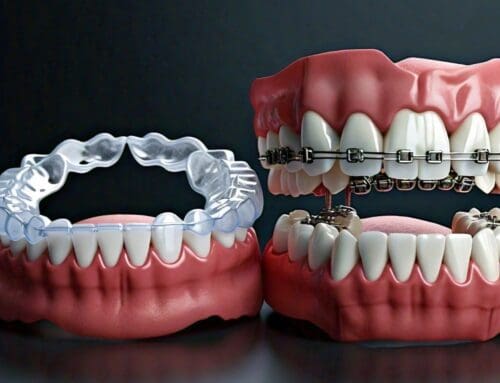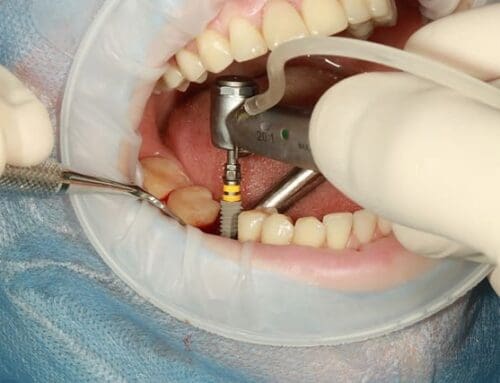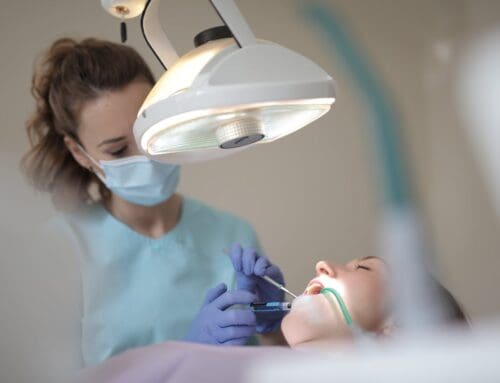1. Understanding Dental Implant Components
Dental implants comprise three crucial components: the implant itself, the abutment, and the dental prosthesis. Let’s delve into and define each of these vital parts:
- Implant: Surgeons actively implant a titanium screw-like post, known as the implant, into the jawbone. This post is designed to fuse with the surrounding bone through a process known as osseointegration. Consequently, it provides a stable and secure foundation for the replacement tooth.
- Abutment: Functioning as a pivotal link, the abutment is a small connector, usually crafted from metal or ceramic. It securely attaches to the top of the implant. Its primary role is to ensure a seamless connection between the implant and the dental prosthesis, guaranteeing a snug fit.
- Dental Prosthesis: Serving as the visible part of the implant, the dental prosthesis is an artificial tooth that is custom-made to blend in with your natural teeth. Whether it’s a single crown, a dental bridge, or even a complete set of dentures, the prosthesis is securely affixed to the abutment, beautifully restoring your smile.
2. The Dental Implant Procedure
- The dental implant procedure unfolds over months, involving several key stages:
- Initial Consultation: Initially, your dentist evaluates your oral health, conducts x-rays, 3D imaging, and formulates a personalized plan.
- Bone Grafting (if needed): If necessary, bone grafting strengthens your jawbone, providing a solid foundation for the implant.
- Implant Placement: Subsequently, the titanium implant is surgically embedded into the prepared jawbone.
- Healing Period: Afterwards, several months of healing allow the implant to integrate securely with the bone through osseointegration.
- Abutment Placement: Once integration is confirmed, the dentist attaches the abutment in a minor procedure.
- Dental Prosthesis: Finally, after gum healing, an impression for your custom dental prosthesis is made. The prosthesis is then secured to the abutment, fully restoring your smile.
3. Benefits of Dental Implants
Dental implants offer a plethora of advantages over traditional tooth replacement options:
– Natural Appearance: Dental implants closely mimic the appearance of your natural teeth, creating a seamless and natural-looking smile.
– Improved Functionality: Implants function just like your natural teeth, allowing you to eat, speak, and chew without discomfort or inconvenience.
– Long-Lasting: With proper care, dental implants can last a lifetime, making them a more durable and cost-effective solution in the long run.
– Preservation of Jawbone: Implants stimulate the jawbone and prevent its deterioration, which is a common side effect of tooth loss.
– Enhanced Oral Health: Unlike dental bridges, implants do not require the removal of healthy tooth structure, preserving the integrity of your remaining teeth and promoting better overall oral health.
4. Dental Implant Aftercare Tips
To ensure the longevity of your dental implants and maintain optimal oral health, follow these aftercare tips:
– Oral Hygiene: Practice a consistent oral hygiene routine, including brushing twice a day, flossing daily, and using an antibacterial mouthwash.
– Regular Dental Checkups: Visit your dentist regularly for checkups and cleanings, as this will allow your dentist to monitor the health of your implant and address any potential issues.
– Avoid Tobacco Products: Smoking or using smokeless tobacco can hinder the healing process and negatively impact the longevity of your dental implant. It’s crucial to quit tobacco usage for the health of your implant and overall well-being.
– Protect Your Implants: Avoid using your teeth as tools or biting down on hard objects, as this can damage both your natural teeth and your dental implant.
Final Thoughts
Dental implants are an excellent solution for restoring missing teeth, offering lasting, natural-looking results that enhance the beauty and function of your smile. By understanding the dental implant components, procedure, and benefits, as well as consistently adhering to proper aftercare practices, you can enjoy a complete and healthy smile for years to come.
At Pike District Smiles, our team is dedicated to providing top-quality dental implant services and care, guiding you through every step of the process and ensuring the best possible outcome. Trust in our expertise on dental implants in Rockville, MD, to help you regain the radiant smile you deserve.







